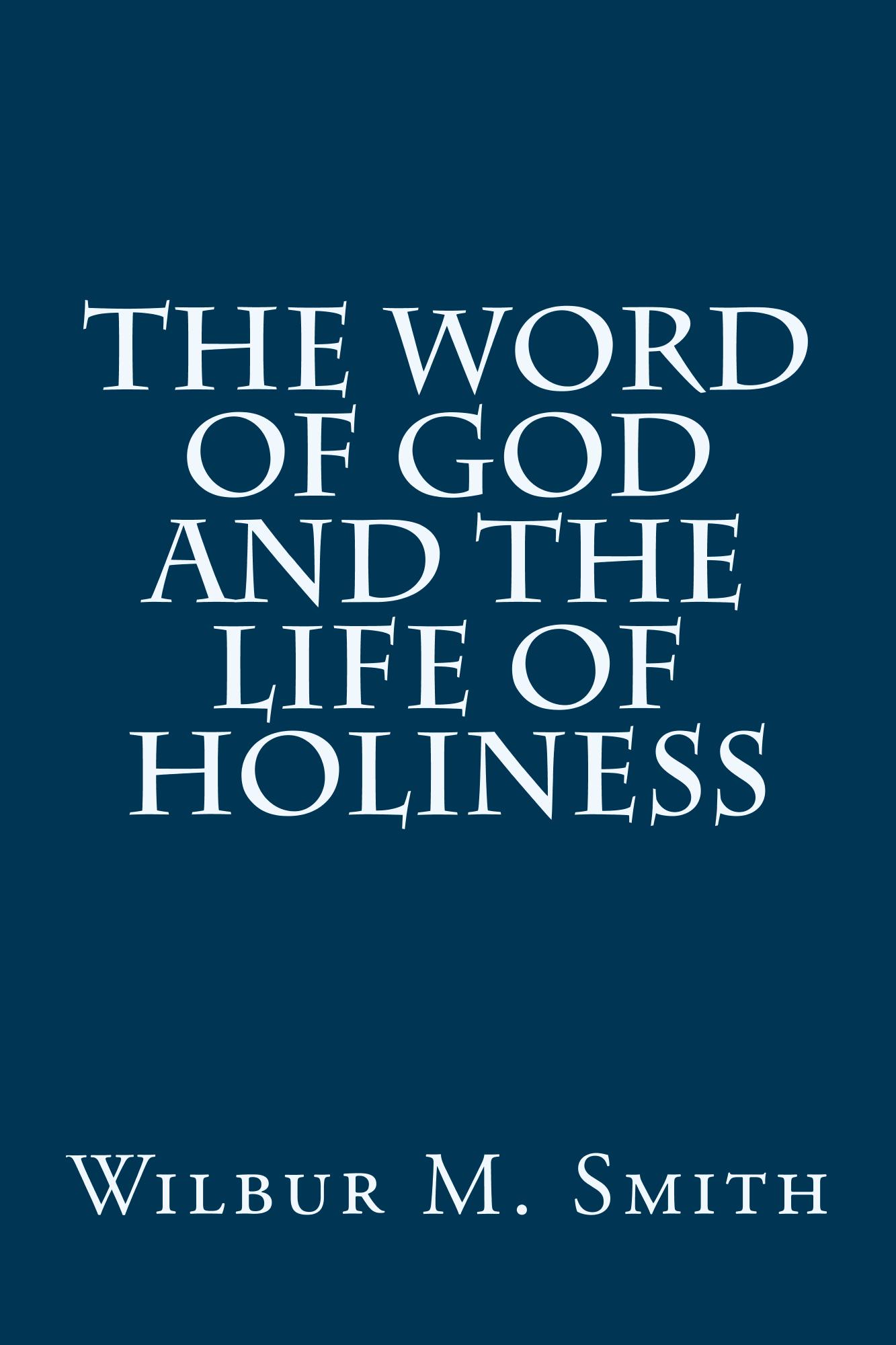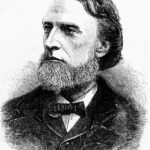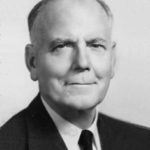Description
THE WORD OF GOD AND THE LIFE OF HOLINESS
by
Wilbur M. Smith, D.D.
2014
CHAPTER ONE – THE HOLY WORD OF GOD. 3
CHAPTER TWO – THE WORD AS THE REVEALER OF SIN. 12
CHAPTER THREE – THE SANCTIFYING POWER OF THE WORD. 24
CHAPTER FOUR – THE POWER OF THE WORD TO GIVE VICTORY OVER SIN 37
CHAPTER FIVE – THE WORD AND DEFEATED DISCIPLES. 54
CHAPTER ONE – THE HOLY WORD OF GOD
The Word of God and the Life of Holiness by Wilbur M. Smith
IN INTRODUCING THIS SUBJECT I must make a confession: the subject of holiness for years was not one in which I was seriously interested. Perhaps some of you are not interested in it to-day. I do not mean that I did not love the Word of GOD – it has been the love of my life; I do not mean that I was separated from the Gospel and that I did not preach CHRIST crucified, nor believe the Word in its full inspiration. But holiness was a subject I avoided. The New Testament teaching of holiness is clear, but until a few years ago this area of Bible research was one which I shirked.
And so, before entering upon some aspects of this sacred theme, let me first re-utter the word of the Apostle Paul, “Not as though I have already attained, either were already perfect: but I follow after, if that I may apprehend that for which also I am apprehended of Christ Jesus” (Philippians 3:12). Along with this may I refer to some words from one of the great saints of the nineteenth century, Andrew Murray? It had been thirty -five years since Andrew Murray wrote his “Abide in CHRIST,” and he said: “I would like you to understand that a minister or Christian author may often be led to say more than he has experienced. I had not then [when he wrote ‘Abide in CHRIST‘] experienced all that I wrote of. I cannot say that I experience it all perfectly now.”
If we are to have a text, may I take one which has only forcefully come to me in the last few weeks – Psalm 60:6, “God hath spoken in His holiness.” With this we might combine Romans 1:2, “Promised afore by His prophets in the Holy Scriptures,” and St. Paul’s words to Timothy, “From a child thou hast known the Holy Scriptures” (I Timothy 3:15; cf. Jeremiah 23:9, “the words of His holiness“).
With the word of the Psalmist as our foundation – “God hath spoken in His holiness” – let us consider three things in this opening message:
- first, the nature of holiness – GOD’s character
- second, GOD’s calling – to holiness
- third, GOD’s communication in holiness, or for holiness.
It is not necessary here to do more than remind you of the great sentences setting forth the holiness of GOD – “Be ye holy, for I am holy.” “Holy, holy, holy, is the Lord of hosts.” “The Holy One of Israel.” But we must for a moment try to get at the meaning of this word “holiness.”
First of all, the root word means to separate from; to cut off from; to separate something from that which is common, from the ordinary. Thus a holy city is separated from the other cities; holy ground is something sanctified and set apart from the rest of the ground; a holy man is one separated from the rest of mankind; and a holy day is something that is separated from the rest of the week; a holy nation is a people whom GOD separates from the rest of mankind. Holiness thus fundamentally means separation from that which is profane, common, ordinary, ungodly, unholy.
It is a very interesting and often overlooked fact, that the character of holiness belongs only to GOD, is uniquely His, and belongs innately to no other being in the world. Brunner, in a recent book (and I am well aware there is much in Brunner you and I cannot approve), reminds us that “holiness is not a quality which GOD possesses in common with other beings.”
- GOD has wisdom – so have we;
- GOD has power – so do men in some degree;
- GOD has love – so have men;
- GOD is holy – men are not.
“Holiness is not something which GOD possesses in common with other beings; on the contrary, it is that which distinguishes GOD clearly and absolutely from everything else. To be holy is the distinguishing mark peculiar to GOD alone.” It is that which sets the being of GOD apart from all other forms of being.
When “GOD hath spoken in His holiness,” we begin with GOD separate from the common, the ordinary, the defiled, the material, the unholy, the ungodly. GOD is a holy GOD: holiness belongeth unto Him.
Now this great truth involves a terrible aspect of GOD – that He will not, He cannot, He must not allow the unholy and the profane to come nigh to Him. He will never be polluted in His holiness; He will never allow that to enter into His presence which would contaminate or compromise His holiness. The mount on which He appeared to Moses must not be touched by hand. Yet the amazing thing is, that with all that, we hear, nevertheless, a strange call – “But as he which hath called you is holy, so be ye holy in all manner of conversation; Because it is written, Be ye holy; for I am holy” (Leviticus 11:44, 45; I Peter 1:15, 16).
GOD is all-wise, though He never tells us to be; GOD is omnipotent, but, He does not tell us to be omnipotent; GOD is eternal, but He could not tell us to be eternal; yet GOD is holy, and He tells us to be holy – “Be ye holy; for I am holy.”
Here may I call attention to something which the New Testament adds to the Old Testament command, ” Be ye holy” – and that is, we are now called to be holy. One of the greatest chapters in the Bible is surely the first of Ephesians. I can be disturbed, defeated, and discouraged, and when I think of my many failures and shortcomings, and the struggles of my own life, I often turn to this great passage to be again in touch with the great realities of what GOD has done for me. In this chapter we find these words: ” According as He hath chosen us in Him before the foundation of the world, that we should be holy, . . .”
- He did not choose us to be brilliant, or to get a reputation.
- He did not choose us to be successful in business.
- He did not choose us to make a name in the world.
He chose us to be holy.
That includes every child of GOD in the world; and I would to GOD that thirty years ago I had embraced that. “I chose thee from the foundation of the world, to be holy.”
In Romans 1:7 we have this same truth, “called to be saints.” The word “saint” and the word “holy” in the Greek are both exactly the same. May I introduce here some interesting statistics? From Matthew through to the Book of the Acts, the Greek word for “holy” and “saint” occurs ninety-six times; and of those, sixty-seven refer to the HOLY SPIRIT.
But from Romans through to Jude the same word occurs one hundred and six times, of which twenty-six occurrences relate to the HOLY SPIRIT, and sixty-six to holy living.
Never forget that the word which GOD used to characterize the Third Person of the Godhead; Holy, is the word that He uses for the call to be holy.
Once again, in Colossians 1:21, 22 we read, “Yet now hath He reconciled in the body of His flesh through death, to present you holy . . .” So we are chosen to be holy, we are called to be holy, we are reconciled to GOD to be holy.
Nothing could be plainer than that. Beloved, if we do not want to live a holy life, we certainly cannot be pleasing to GOD. As Dr. Scroggie has said, “We will never be what we are intended to be unless we are walking in the holiness of GOD.”
That leads me to the real subject of our text: He “hath spoken in His holiness.” The Holy Word of GOD.
Have you ever thought of the title on the back and on the front page of your Bible, “The Holy Bible”? That was not placed there by the Apostles, because there was no such book as the Bible in the Apostolic Age. Though the Bible was finished by the end of the first century, it had not been put together in the form we now have it. When you see on your Bible the title, “The Holy Bible,” remember you are holding the only book in the world that can rightly be called holy.
Years ago in a town where I was a pastor, I went into a drug store for a drink of malted milk. The clerk had a book in his hand, and naturally I said to him, “What is the book?” He replied, “What do you want to drink? You do not want to read this book.” So I repeated my question, “What is the book?” He replied, “It cost me fifty dollars, this thin volume; and I had to make a statement to the United States Government before I could get it into this country, that I was doing research in the subject of Hinduism.”
He had had to pay the fifty dollars because it was a book of photographs of Hindu temple carvings, with accompanying legends; and the pictures were so vile and the legends so obscene that the United States Government would not allow the book to be brought into America unless one pledged their word that they were doing research on this subject. It was a religious, but an obscene volume.
The book of our faith is “The Holy Bible”; for it, one needs never to apologize.
Years ago I heard Dr. Samuel Zwemer, the greatest missionary to the Mohammedans for the last twenty-five years following your own Gairdner, say that the word for real holiness in Arabic never appears in the Koran. When I came to London I met one of the famous Arabic scholars in Great Britain, a true Christian believer, and I asked him if I had heard correctly. He replied, “I never thought of that before, but I will look it up.” “Within forty-eight hours I had a letter from him, saying that the two main words for holiness in Arabic never occurred in the book that Mahomet wrote. They have a book they call the “Holy” Koran, but Mahomet never dared to use the Arabic word for holiness when he wrote this book. “God hath spoken in His holiness.”
Now let us ask ourselves a question – What makes this a holy book, and thus a standard for a holy life? May I suggest four reasons?
First, it is initiated by a holy GOD. Our Lord said, “Out of the abundance of the heart the mouth speaketh.” That is as true of GOD as it is of you and me. Out of GOD’s holiness only holy words could ever proceed. If GOD is a holy GOD, His Word can only be a holy Word.
Secondly, this Word is given to us through the HOLY SPIRIT. Over and over again we read this: “The Holy Ghost by the mouth of David spake“; “the words which… the Holy Ghost teacheth“; “Holy men of God spake as they were moved by the Holy Ghost.” “‘Inspiration,’ has in the middle of it the word “spirit.”
Thirdly, this Book was written by holy men of old, as they were moved by the HOLY SPIRIT (II Peter 1:21). How can anyone expect a revelation from GOD in books written by wicked men? I have a great love for Wordsworth (I wish I could read him more), and the same for Ruskin, Shakespeare and Carlyle. There is much that is beautiful and entertaining and moral in their works; but when it comes to matters of the soul and Heaven and death and GOD, we have to have a book that derives from holy sources, that talks about a holy CHRIST, a holy calling, a holy love, a holy Gospel, a heavenly home, the HOLY SPIRIT. This Book is saturated with the things that are set apart – a separate day, a separate family, a separate nation, a separate CHRIST, a separated you and me.
Last of all, this Book is holy because it makes for holy men and women. There are no holy people on earth to-day, except those who know something of this Holy Book and its Holy CHRIST; anything else is a mockery.
May I pass on to you a true story to illustrate this (I do not believe in manufactured fiction). Some years ago a doctor came up to New York from Cuba to start a practice. He was short of money, under-nourished, and the heavy New York winter fell upon him as he was inadequately prepared, and clad in a tropical suit to face a very hard winter. He developed pneumonia, and fell unconscious under the 4th Avenue elevator in New York. Later he was picked up by a policeman and taken to Bellevue Hospital.
When he recovered he told this story. “Into the ward came a strange woman. She spoke Spanish, and gave me a Gospel John. Never saw Gospel John before. She knelt down by my bed and say a prayer, and then went out. I read and come to a story of how a man JESUS healed a man born blind. I said, ‘No can be.’ No one ever heard of anyone born blind being healed. I am a doctor, and I threw down the book. Later, I had nothing to do, I read on, and found JESUS died for me, and He opened my eyes and I saw my Saviour.”
He was saved, and soon started a mission for Cubans and Spaniards in the Spanish area of New York. When he began to prosper he sent for his mother, a bigoted member of the Roman Church. When she heard the story, she pronounced on him every curse she could think of.
One night she came down to the mission, and when she entered the son said to himself, “Now I fear there will be trouble.” In the middle of the meeting she stood up and asked, “Could I say something?” The son, saying to himself, “I know we are going to have trouble,” gave her permission. This is what she said: “My boy Pedro very wicked boy. One day in hospital a little woman put a book in the hands of my wicked boy, Pedro. Now my wicked boy very good man – very good book to make my wicked boy a very good man.”
After years and years in the Christian ministry, and meeting many people throughout the Western world, I believe the greatest need in the Christian Church to-day is a baptism of downright holiness unto GOD. One of your own well-known theologians has recently said that the world is indifferent to our doctrine and not interested in our theology, nor in the Bible as such; but the world watches men who are brave enough to say they are saints unto GOD. While the world cares nothing about theological discourses, it will be compelled to give attention to men who are living holy lives unto GOD.
In these days when we know more than we ever knew, when we travel as never before, see the world displayed before us on television, and are faced by a knowledge of atomic bombs and material things, United Nations, world assemblies, etc., and from early morning until late at night the radio blares at us, that which will penetrate this heavy armour of pre -occupation with material things, with vast problems, with armaments and nuclear physics, and a humanistic philosophy, encasing the hearts and minds of modern man, will be the uniqueness of lives of true holiness. And if you and I are to live holy unto Him, we will need as never before to listen to His Holy Word; for here, and in no other place or volume, “God has spoken in His holiness.”
The Word of God and the Life of Holiness by Wilbur M. Smith



